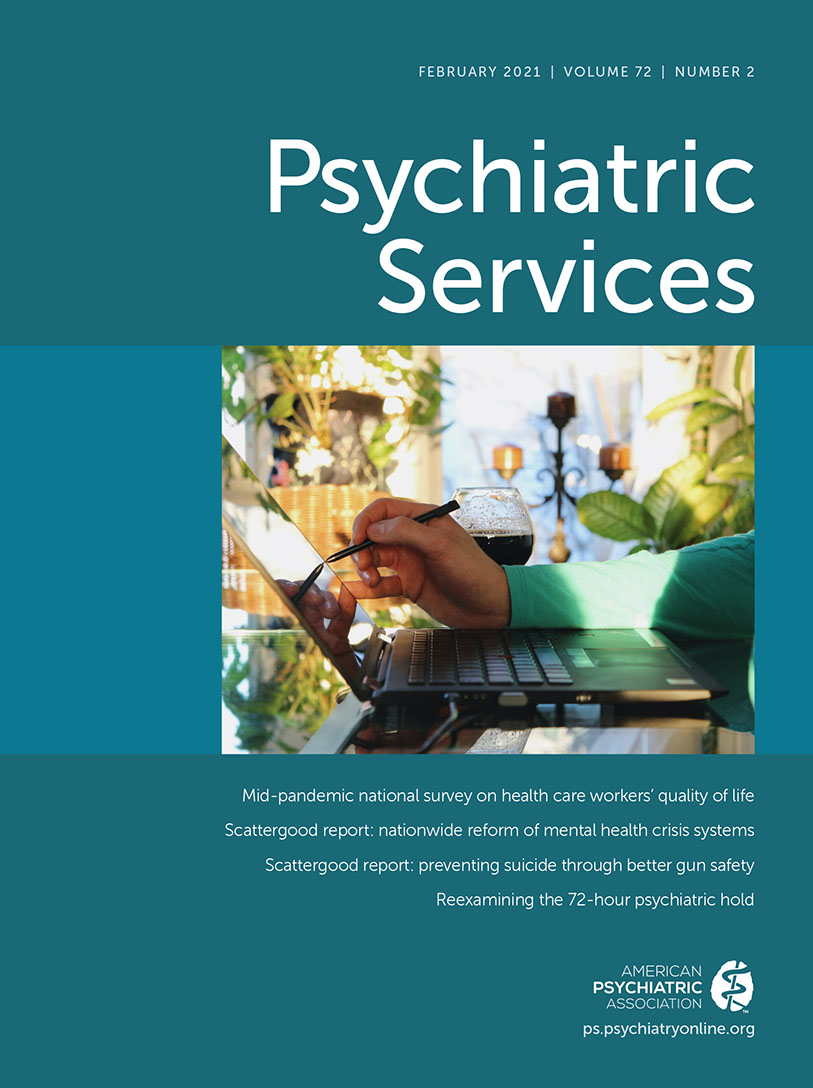Racial-Ethnic Disparities in Mental Health Care
This Editor’s Choice collection was first published online in January 2021. To review all collections, visit the Editor’s Choice section of ps.psychiatryonline.org.
Issues of racism and social injustice have finally captured the attention of the academic community, following the international outrage and protest against racism in response to the recent killings of George Floyd, Ahmaud Arbery, Breonna Taylor, and countless other Black people. In addition to these appalling episodes of police violence and vigilantism, the COVID-19 pandemic has further revealed racial-ethnic inequities as evidenced by the disproportionate morbidity and mortality of Black, Latinx, indigenous, and other persons of color. Many academic journals are wrestling with how to respond to the current “syndemic” of anti-Black systemic racism and the COVID-19 pandemic and have issued a call to action for all those involved in research, clinical care, and education.
In June 2019, prior to the groundswell of support for scholarly work focused on health disparities, Psychiatric Services curated an Editor’s Choice collection on racial-ethnic mental health disparities. This original collection focused on characterizing the problem, financial considerations, quality of care received, and proposed solutions. Given the importance of this topic, with renewed attention and global priority, we updated this collection to highlight publications within the past 2 years that center on additional topics, including experiences of mental illness in other vulnerable populations, such as sexual minorities, youths, and those involved in the carceral system; barriers related to accessing mental health services among people of color; and thoughtful solutions to eliminate racial and ethnic disparities. We encourage readers to listen to our Psychiatric Services From Pages to Practice Podcast (Episode 36, August 2020), where we discuss factors contributing to these ongoing disparities and critically analyze ways to move forward. The field of psychiatry cannot move forward without deliberate scholarship and action in the realm of social justice. We invite our colleagues to commit to this work and engage in the conversation; to start, we offer a few curated items to delve into the nuances related to racial and ethnic disparities in mental health.
Vulnerable populations (geriatric, lgtbqia+, incarcerated persons, youths)
Psychiatric Symptoms and Diagnoses Among U.S. College Students: A Comparison by Race and Ethnicity
Chen JA, Stevens C, Wong SHM, et al.
Psychiatr Serv 2019; 70:442–449
Factors Associated With Use of Mental Health and Substance Use Treatment Services by Justice-Involved Youths
Yonek JC, Dauria EF, Kemp K, et al.
Psychiatr Serv 2019; 70:586–595
Evidence for Differential Predictive Performance of the Prime Screen Between Black and White Help-Seeking Youths
Millman ZB, Rakhshan Rouhakhtar PJ, DeVylder JE, et al.
Psychiatr Serv 2019; 70:907–914
Racial-Ethnic Differences in Service Use Patterns Among Young, Commercially Insured Individuals With Recent-Onset Psychosis
van der Ven E, Susser E, Dixon LB, et al.
Psychiatr Serv 2020; 71:433–439
A Qualitative Investigation of Engagement in Mental Health Services Among Black and Hispanic LGB Young Adults
Moore KL, Lopez L, Camacho D, et al.
Psychiatr Serv 2020; 71:555–561
Differential Incarceration by Race-Ethnicity and Mental Health Service Status in the Los Angeles County Jail System
Appel O, Stephens D, Shadravan SM, et al.
Psychiatr Serv 2020; 71:843–846
Service utilization
Disparities in Mental Health Care Utilization and Perceived Need Among Asian Americans: 2012–2016
Yang KG, Rodgers CRR, Lee E, et al.
Psychiatr Serv 2020; 71:21–27
The Role of County Characteristics in Mental Health Service Use by Older African Americans
Kim K, Lehning AJ, Sacco P
Psychiatr Serv 2020; 71:465–471
Proposed solutions
A Systematic Review of Interventions to Improve Initiation of Mental Health Care Among Racial-Ethnic Minority Groups
Lee-Tauler SY, Eun J, Corbett D, et al.
Psychiatr Serv 2018; 69:628–647
Special consideration
Provider Contributions to Disparities in Mental Health Care
Merced K, Imel ZE, Baldwin SA, et al.
Psychiatr Serv 2020; 71:765–771
Improving Service Coordination and Reducing Mental Health Disparities Through Adoption of Electronic Health Records
McGregor B, Mack D, Wrenn G, et al.
Psychiatr Serv 2015; 66:985–987
Racial and Ethnic Disparities in Treatment and Treatment Type for Depression in a National Sample of Medicaid Recipients
McGregor B, Li C, Baltrus P, et al.
Psychiatr Serv 2020; 71:663–669



